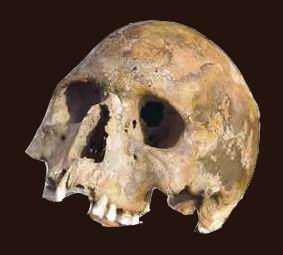Death, the merciless equalizer. Death, the father of fear. Death the basis of rejuvenation. 
A terminally ill cancer patient has been suffering for the last one year. With chemotherapy and radiotherapy there was no relief to his symptoms; rather it has worsened his sufferings. He felt severe weakness, loss of appetite, nausea, loss of hairs, had burns on his skin due to radiotherapy and to worsen his sufferings he had to receive a series of injections and various other medications which made his days even more miserable. He was put on Ryle’s tube and had to undergo investigations and invasive monitoring just to prolong his sufferings. Every day he cried in agony, he looked at his decaying body in despair, and wanted an end to his sufferings. He was declared terminally ill, but still he was obliged to take costly medical treatment. His relatives tried their best, they arranged for multiple blood transfusions, they became almost bankrupt paying for all the costly medicines and a battery of investigations, physically they were all tired and exhausted, emotionally they were shattered and filled with gloominess all the time.
Amidst the chaos created on the name of giving their best to provide medical treatment to their patient, they had forgotten even to speak to him. The environment in hospital created a barrier for even a silent communication between them. Communication which is the most important element in life and even more important for the dying was also denied to him, because of the preference for the so called logical medical management. He was anxious for the touch of his close ones, but the various intravenous lines, monitoring devices, and oxygen masks did not permit for a hug or a hearty touch that he so desperately wanted. He knew he will die, he wanted to die. In fact if somebody had bothered to ask him what his last wishes are he would had sobbed and said “let me go.” He also wanted to talk to his loved ones for the last time, in tranquility. But … our so called modern system has no space for sentiments and emotions. He finally died in pain, anguish and discontent, without being able to communicate his last words and without giving his sacred blessings to his loved ones. Despite the physical presence of all his relatives and despite adequate medical management he died lonely and felt abandoned. His relatives suffered as well. They were left frustrated, exhausted, defeated and confused. It was a very painful, rude and costly death.
Death arouses the most painful and devastating of all human emotions. It disrupts and changes a person abruptly. It can initiate depression and social withdrawal. When you see a loved one passing away, a part of you is lost for ever with that person. A loss which will never be compensated. But death is a compulsory phase in our life, which we all surely have to face sooner or later. Death does naturally bring suffering with it. Can death be better? Can it be healthier? Can death be natural and acceptable to everyone as it should be? Why do we still run away from the ultimate reality? Our world is not a stranger to the day of doom. Can we confront the scene of our own death and make attempts to minimize the sufferings. Not less significant than preparing for our own death is helping others to die in ease as well. Good death is a natural process of dying, to ensure a calm and peaceful death in context of relieving incurable sufferings. I have seen many people dying. Almost every time the scene is similar. The patient suffers and feels life is disgusting, whereas the attendants are in despair, confused by the limitations, cost and adverse factors of medical management. Isn’t it the time to look at how we are treating those suffering with terminal illnesses like cancer, AIDS, Septicemia, multiorgan failures? Isn’t there a need to add a spiritual and emotional touch to the care of dying patients? We should understand the limitations of science and economize the cost of dying by stopping useless and unproven treatment for the terminally ill patients, except under experimental protocols and with the consent of patients. Death should be a meeting point between the medical professionals and our spiritual and religious practitioners.

We have survived the havoc of nature, finally reaching the peak of civilization because of our desire for life. During our whole life we try to flee from the thought of death, we fear death. But death is not as frightening as we tend to believe. It is something that is to be looked upon as a favor done by nature on us. For the terminally ill patient death is a rescue from his longstanding sufferings. It is the ultimate cure for their sufferings. Death is better, a milder fate than their sick, decayed, painful and disgraceful living. So it should be seen with a more open mind and accepted gracefully. Understanding death offers us clarity of vision about life- to live life more appropriately, acceptably and completely

Death is not just an end but a new beginning. And every death has a certain and definite meaning. If death was defined as an absolute end, we would have found life meaningless. And it would have been futile to live as a saint or as a scoundrel, as what we do in our life would have no bearing on our life after death. Life does not end with the death. Instead it becomes more purified, transformed, better evolved, resurrected and reincarnated to maintain the continuity.

A terminally ill cancer patient has been suffering for the last one year. With chemotherapy and radiotherapy there was no relief to his symptoms; rather it has worsened his sufferings. He felt severe weakness, loss of appetite, nausea, loss of hairs, had burns on his skin due to radiotherapy and to worsen his sufferings he had to receive a series of injections and various other medications which made his days even more miserable. He was put on Ryle’s tube and had to undergo investigations and invasive monitoring just to prolong his sufferings. Every day he cried in agony, he looked at his decaying body in despair, and wanted an end to his sufferings. He was declared terminally ill, but still he was obliged to take costly medical treatment. His relatives tried their best, they arranged for multiple blood transfusions, they became almost bankrupt paying for all the costly medicines and a battery of investigations, physically they were all tired and exhausted, emotionally they were shattered and filled with gloominess all the time.

Amidst the chaos created on the name of giving their best to provide medical treatment to their patient, they had forgotten even to speak to him. The environment in hospital created a barrier for even a silent communication between them. Communication which is the most important element in life and even more important for the dying was also denied to him, because of the preference for the so called logical medical management. He was anxious for the touch of his close ones, but the various intravenous lines, monitoring devices, and oxygen masks did not permit for a hug or a hearty touch that he so desperately wanted. He knew he will die, he wanted to die. In fact if somebody had bothered to ask him what his last wishes are he would had sobbed and said “let me go.” He also wanted to talk to his loved ones for the last time, in tranquility. But … our so called modern system has no space for sentiments and emotions. He finally died in pain, anguish and discontent, without being able to communicate his last words and without giving his sacred blessings to his loved ones. Despite the physical presence of all his relatives and despite adequate medical management he died lonely and felt abandoned. His relatives suffered as well. They were left frustrated, exhausted, defeated and confused. It was a very painful, rude and costly death.

Death arouses the most painful and devastating of all human emotions. It disrupts and changes a person abruptly. It can initiate depression and social withdrawal. When you see a loved one passing away, a part of you is lost for ever with that person. A loss which will never be compensated. But death is a compulsory phase in our life, which we all surely have to face sooner or later. Death does naturally bring suffering with it. Can death be better? Can it be healthier? Can death be natural and acceptable to everyone as it should be? Why do we still run away from the ultimate reality? Our world is not a stranger to the day of doom. Can we confront the scene of our own death and make attempts to minimize the sufferings. Not less significant than preparing for our own death is helping others to die in ease as well. Good death is a natural process of dying, to ensure a calm and peaceful death in context of relieving incurable sufferings. I have seen many people dying. Almost every time the scene is similar. The patient suffers and feels life is disgusting, whereas the attendants are in despair, confused by the limitations, cost and adverse factors of medical management. Isn’t it the time to look at how we are treating those suffering with terminal illnesses like cancer, AIDS, Septicemia, multiorgan failures? Isn’t there a need to add a spiritual and emotional touch to the care of dying patients? We should understand the limitations of science and economize the cost of dying by stopping useless and unproven treatment for the terminally ill patients, except under experimental protocols and with the consent of patients. Death should be a meeting point between the medical professionals and our spiritual and religious practitioners.
Death is more universal than life, everyone dies but not everyone lives. Sachs.
After deathAfter the death medical care ends and spirituality begins. Death is a mirror in which whole life can be visualized. According to scientists 50,000 species of life are driven into extinction every year. There have been five mass extinctions since the first form of life walked on earth. One season dies to give birth to a new season. Human beings, plants, animals, bio-systems and cosmic bodies, all undergo birth and death.

We have survived the havoc of nature, finally reaching the peak of civilization because of our desire for life. During our whole life we try to flee from the thought of death, we fear death. But death is not as frightening as we tend to believe. It is something that is to be looked upon as a favor done by nature on us. For the terminally ill patient death is a rescue from his longstanding sufferings. It is the ultimate cure for their sufferings. Death is better, a milder fate than their sick, decayed, painful and disgraceful living. So it should be seen with a more open mind and accepted gracefully. Understanding death offers us clarity of vision about life- to live life more appropriately, acceptably and completely
“The old order changeth, yielding place to new, And God fulfils Himself in many ways. Lest one good custom should corrupt the world.” Alfred Tennyson.

Death is not just an end but a new beginning. And every death has a certain and definite meaning. If death was defined as an absolute end, we would have found life meaningless. And it would have been futile to live as a saint or as a scoundrel, as what we do in our life would have no bearing on our life after death. Life does not end with the death. Instead it becomes more purified, transformed, better evolved, resurrected and reincarnated to maintain the continuity.
Death should not be feared. It’s just the continuity of life. L. Mettrie.So death should be used to invigorate and stimulate a person to achieve great heights. It should be used to create new social bonds, give focused attention on social problems, replace old systems and help us to improve over the existing norms. Terminally ill patients should be seen as warning signals. They tell us that we have been neglecting deep aspects of our being. We have been neglecting spiritual, physical and mental norms. We should take these warnings seriously and think of fundamental changes in our lives. The treatment should be directed not just for our physical bodies, but also our mind and spirits, our whole being. Similarly reflections of death should prompt us for a real change, deep in our hearts. A change for good, a change towards light and a change towards bliss. Death is the end of your journey of life. Death is an ultimate goal of every living thing on this planet. It is the only certainty and truth in our lives. One should not be afraid of death. One should also not be against death. In fact one should be ready and prepared for death. Death is beautiful, its silence, its serene, its stillness and its so soothing its deep rest.
As a well spent day brings happy sleep, so life well used brings happy death! Leonardo the Vinci.